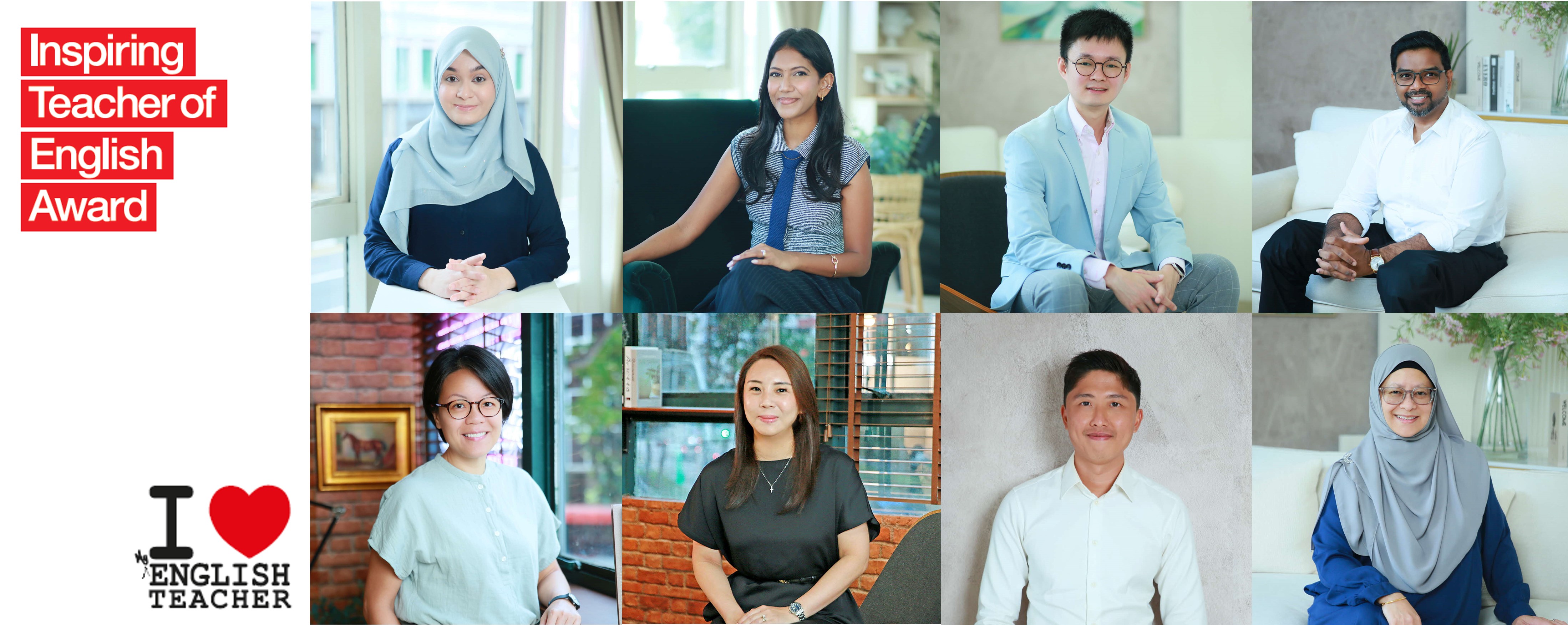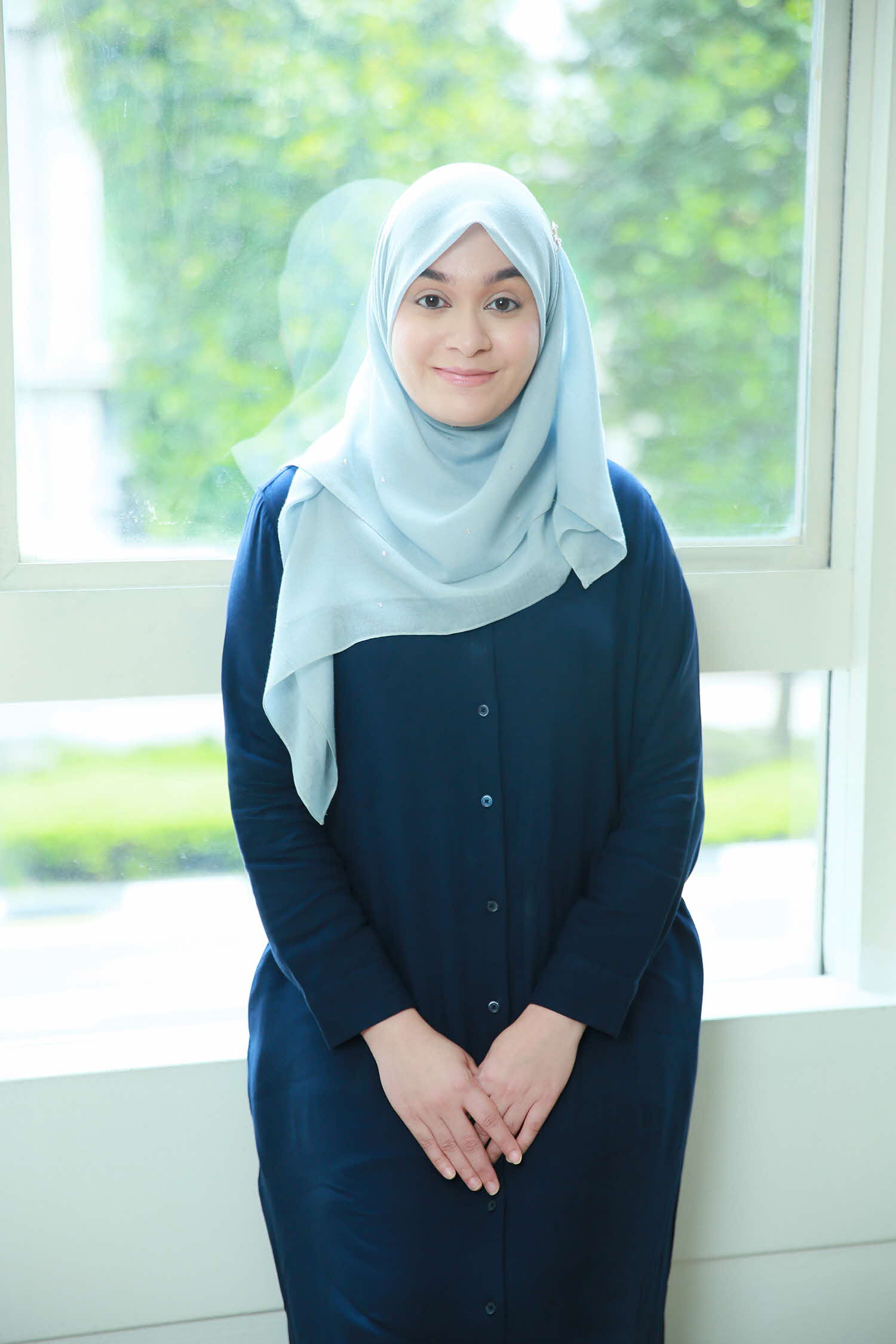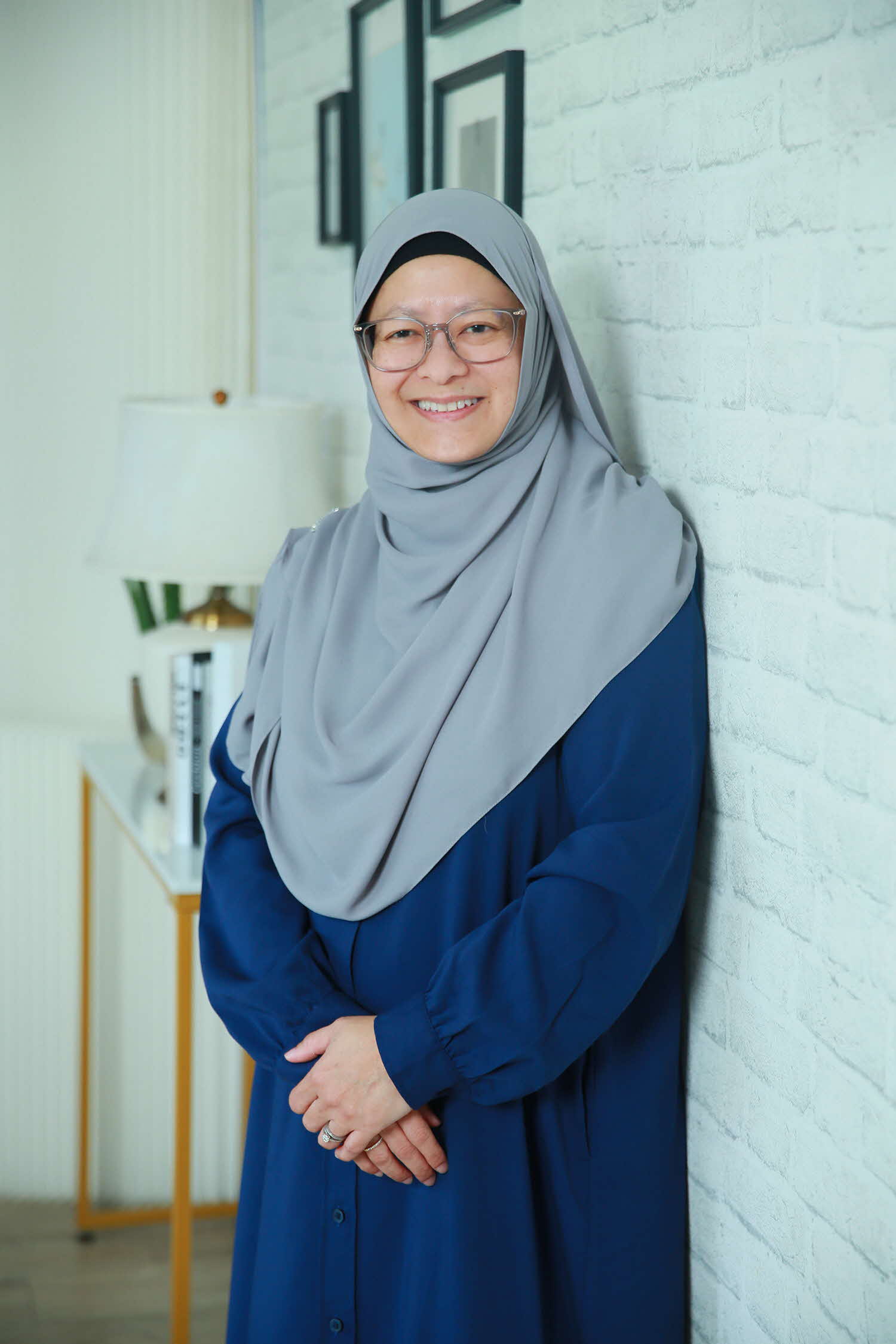
Winners of the 2025 Inspiring Teacher of English Award
Congratulatory Speech by Mr Desmond Lee
Minister for Education
Press Release for Inspiring Teacher of English Award 2025
ITEA 2025 - Teaching Award Category
Primary School Category
Ms Amirinazeb D/O Aurangzeb
CHIJ Kellock

In my teaching practice, I aim to cultivate in my students a positive attitude towards language learning and empower them to become confident and effective communicators across various modes of expression, including spoken, written, and digital communication. I recognise that language learning may present complex challenges for my students, and technology can play a crucial role in supporting their developmental journey. By weaving technology thoughtfully into the scaffolding process, I deconstruct complex tasks into manageable steps, with technological tools providing targeted support and feedback at each stage, to guide my students towards developing greater independence in their learning.
One of my most interesting experiences as an English Language teacher involved creating opportunities for my students to sharpen their writing skills while developing AI literacy. I designed a customised chatbot, which took on the persona of our class pet, to support my students in the writing process. It acted as a friendly knowledgeable companion to help them improve their drafts by offering feedback and suggestions. My students were encouraged to make deliberate and critical decisions about which AI-generated suggestions to accept or reject. This ensured that they retained their authorial voice while leveraging AI to enhance the quality of their writing. Through this approach, my students also developed prompt engineering skills and learnt to craft purposeful exchanges with the chatbot. The experience was rewarding for them as it helped to sharpen their critical thinking skills and empowered them to take ownership of the writing process.
Secondary School Category
Mrs Uma Ramakrishnan Jacob
CHIJ St Nicholas Girls’ School

I teach my students to be global citizens of tomorrow who recognise and embrace a shared humanity and responsibility for issues that affect us all. At the same time, they are a generation inundated with information and having to deal with technological advancements that shape their social behaviour and worldview. My role in the classroom is as a facilitator and mentor who provides guidance to my students as they search for answers to their questions. I strive to transform language learning into lived experiences in an interactive and evolving process that reflects the ways my students will engage with language throughout their lives.
What excites me most is the opportunity to guide my students on a shared journey of discovery to explore and understand the world around us, and how the use of English in diverse types of texts, leveraging traditional and new media forms, can deepen their connection with content. I design opportunities to cultivate their confidence in public speaking through Socratic Circle discussions and debates activities that enable them to consider various perspectives and to express their thoughts clearly, critically and empathetically in a persuasive manner.
One particularly memorable series of lessons that exemplified this approach had ‘Hawker Culture Preservation’ as its theme, and involved my students in a simulated stakeholder discussion and public consultation session. This learning experience involved them in planning their visit to a local hawker centre, conducting interviews with stallholders, and creating video commentaries that capture multiple perspectives. Apart from gaining firsthand insights into the cultural issues at hand, my students sharpened their critical thinking skills, developed empathy for different viewpoints, and demonstrated how language could serve as a bridge to deepen cultural understanding.
Junior College and Centralised Institute Category
Mr Cliffton Tay Xiang Rui
Anderson Serangoon Junior College

The English Language fascinates me because it offers multiple ways to express the same idea, each unique to one's experiences and perspectives. This richness motivates me to help my students from different backgrounds and levels of readiness navigate the complexities of the language and learn to appreciate it.
My approach involves enabling my students to consider how their choices in the use of words and structures in the language help them express their ideas clearly and persuasively. To do so, I encourage my students to experiment with new expressions, even when their attempts remain imperfect, so that they can genuinely engage with the language and the learning process. Through facilitating group discussions, I also create opportunities for students to practise and sharpen their critical thinking processes and strengthen their oral communication skills. I connect classroom learning to reading and creating authentic texts, so students can see how their ability to evaluate their linguistic choices enables them to communicate effectively in various contexts of language use.
Teaching English continually deepens my own understanding of the language. Lessons with different students help me re-examine familiar concepts and consider how to make knowledge that is implicit to me explicit to them. Teaching English has also made me a more reflective listener and reader, engaging attentively and thoughtfully, and demonstrating critical engagement as I read and listen to my students and others. All of these allow me to journey with my students as we wrestle with ideas about English and its use and helps me become a more effective teacher of the language.
Dr Saravanan Mani
Anglo-Chinese School (Independent)

I enjoy teaching because it keeps me young. I relish the challenge of staying sharp and curious alongside my students, finding joy in guiding their discovery of the nuances embedded in language and literature.
I embrace “controlled chaos” as a pedagogical strategy to spark genuine and meaningful discourse through open-ended inquiries and the use of provocative questions that challenge values, assumptions, and biases, both within the texts we study and in the students’ own worldviews and experiences. These discussions may not always resolve smoothly, but they sharpen my students’ critical thinking skills and build empathy, encouraging them to listen deeply and challenge each other respectfully. The goal extends beyond changing minds; I aim to help my students appreciate different perspectives and find common ground – a vital skill in a polarised world. Within what might appear as conversational chaos, my students manage ambiguity and learn to find clarity of thought, connection with others, and their own voice.
My students’ perseverance amidst competing demands inspires me. In turn, I strive to create a safe classroom environment in which curiosity thrives, and my students can express themselves freely, grow intellectually, and develop emotionally. Helping them uncover their personal voice and building a lifelong connection to literature is not just rewarding, it’s at the heart of why I teach.
Ms Soh Cai Wen Noelle
St Andrew’s Junior College

As a teacher of Literature, I strive to cultivate in my students the same love for words and stories that my favourite teachers once instilled in me. I am also guided by the belief that studying Literature has profound intrinsic value, while also developing life skills – thinking, listening, speaking, reading, writing and building empathy for others. I teach these by example, modelling the dispositions and skills that I hope to develop in my students.
Equally important is the deliberate creation of a safe learning environment for my students to articulate, explore, and seek to understand differing viewpoints with respect and consideration. I continue to feel privileged to teach a subject that allows both my students and me to read deeply and inhabit the unique world that each text creates. This shared journey enables us to explore collaboratively how texts are shaped and created, and to respond personally, intellectually, and with greater thoughtfulness.
ITEA 2025 - Leadership Award Category
Primary School Category
Ms Loh Li Hui Amanda
Haig Girls’ School

My love for language began at home. My father, a firm believer in education, filled our home with phonic cards and books. His belief in providing a text-rich environment that serves as the foundation for intellectual growth, and that reading opens doors to knowledge and opportunities has shaped my own educational philosophy. My identity as an English Language teacher and educational leader is based on this philosophy.
To me, language is not just a subject. It is a powerful and evolving tool that allows us to express, empathise, and advocate for meaningful changes. Understanding the importance of creating a text-rich environment, I strive to provide similar rich experiences for my students. I also create space in the classroom for curiosity and dialogue by offering my students a wide range of quality texts to make their language learning joyful and purposeful.
As Head of Department, I encourage the teachers in the English Language department to design language experiences that are meaningful. I do this by guiding and supporting them in creating classroom environments in which students connect with texts, express themselves with confidence, and find joy in communicating.
One of my most meaningful moments as a teacher of English Language was when my student with learning and behavioural needs wrote to thank me for teaching him and for a storybook I had given him. That message reminded me that language can inspire hope, connect hearts, and transform lives.
Secondary School Category
Mr Perdana Putra Pan
Queenstown Secondary School

As an English Language teacher, I regard language as a means to unlock identity, develop agency, and create opportunities. My work, thus, centres on empowering students to read with discernment and communicate with empathy. These are skills that are especially vital to navigate an increasingly complex world.
My journey as a student shapes how I lead today: with compassion, conviction, and a deep respect for potential within every learner. One deeply meaningful experience was guiding a student and observing her growth from being taciturn to graduating from the National University of Singapore Faculty of Law. She is a testament of what becomes possible when we journey with our students to enable them to find their voice and vision.
In my leadership role, I collaborate closely with colleagues to co-design responsive school-based curricula rooted in real-world relevance that is anchored in the requirements of the national syllabuses. From curating texts that reflect both global and local perspectives to redesigning library spaces that support inquiry-based learning, I ensure that my students not only decode meaning of texts, but are empowered to construct and challenge it.
I build teacher capacity through collaboration, inquiry, and reflective practice so that together, we can enact our collective belief that every student possesses the capacity to listen with empathy, argue with integrity and write with insight. It is a privilege to shape minds ready to engage the world - if not eventually changing them, at least for themselves.
Mdm Siti Zaleha Bte Sharip
Spectra Secondary School

I believe that language is best learned when situated within authentic contexts, and music has been the favourite means by which I teach English. Songs captivate students and open doors to rich interpretation and linguistic exploration.
One memorable lesson I designed centred on Richard Marx’s “Hazard”. For this lesson, students used contextual clues to infer meanings and predict outcomes in the song’s mysterious narrative. Another impactful session was using Simple Plan’s “Untitled.” Initially, students analysed the lyrics without visual or contextual support, leading to varied interpretations. Only after viewing the accompanying music video did they grasp its poignant message about the consequences of drunk driving, highlighting the importance of taking on perspectives in understanding texts. Using Taylor Swift’s “Blank Space” provided my students an unexpected yet delightful opportunity to explore the nuances of listening for enjoyment and with appreciation. Many students misheard some of the lines. This sparked discussions on how misinterpretations can alter meaning, emphasising the need for careful listening and analysis.
The positive experiences I have had with my explorations of using songs and music videos to teach English have led me to encourage my colleagues to be attuned to students' interests when designing learning experiences. Such experiences enable them to connect lessons to the real world through experiential learning.